
m.e.t.i.s.

m.e.t.i.s.
The ‘happiness’ of the demented individual and their close environment is found to be essential for physical and cognitive health.
Prolonging the preferred stay of dementia sufferers at home, alone, or within family care, becomes a core element of this project. The adaptable system aims to support the dementia sufferer and informal caregivers by an extensive approach. Multiple concepts cover assistance for health, personalization, supporting orientation within the dwelling, safety, and guidance through everday processes.
Within this semester project an assistive home system for dementia sufferers is introduced. After a comprehensive analysis on dementia, including its general specifics, forms, courses, and treatments, a research on caregivers was conducted. The research revealed an increasing number of diseased elderly within care of informal caregivers and living alone because of a highly important correlation between home and identity. Therefore, a special emphasis was placed on prolonging the independence of seniors and their preferenced stay at home on the backdrop of architectural guidelines for physical and cognitive support. The various needs of a demented person have to be met to ensure their individual ‘happiness’. This requires a flexible and additive system which is adaptive to unique needs. It is proposed for seniors who live independently or are in familycare. Different concepts for health, database, orientation, safety, and process guide result in the Multifaceted Equipment To Independence System for dementia sufferers (m.e.t.i.s.).
The comprehensive system consists of a primal system, smart tiles and a subsystem for human-computer interaction. The smart tiles for guidance harvest micro-energy to allow for an independent electricity supply. This offers both more mobility and a wider variety of application as well as more safety for the users.
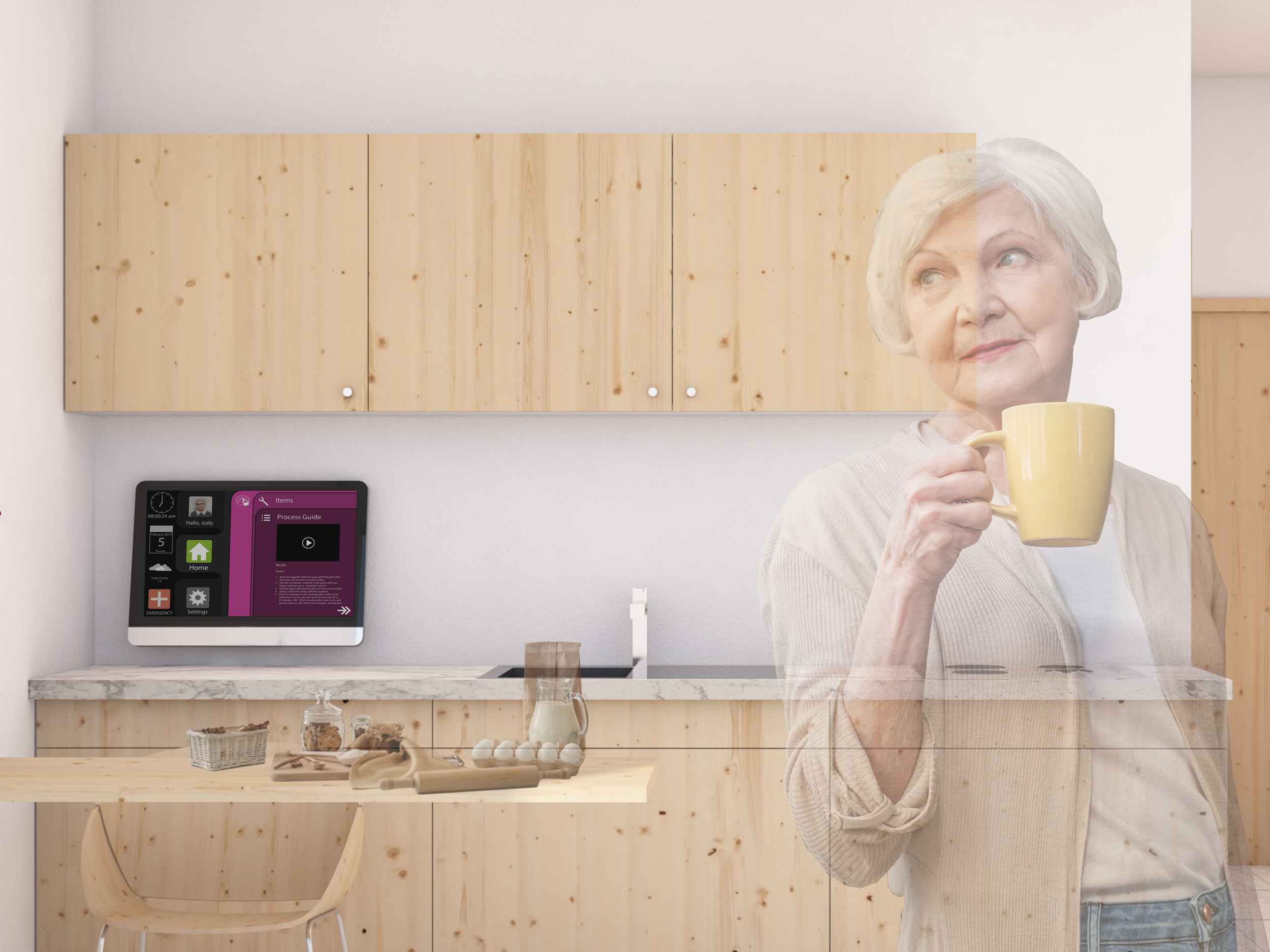
rendering/ cooking scenario

concept 'happiness'/ database, orientation, safety, process guide, health

comprehensive system of smart tiles and large touch screens

flowchart for smart tiles
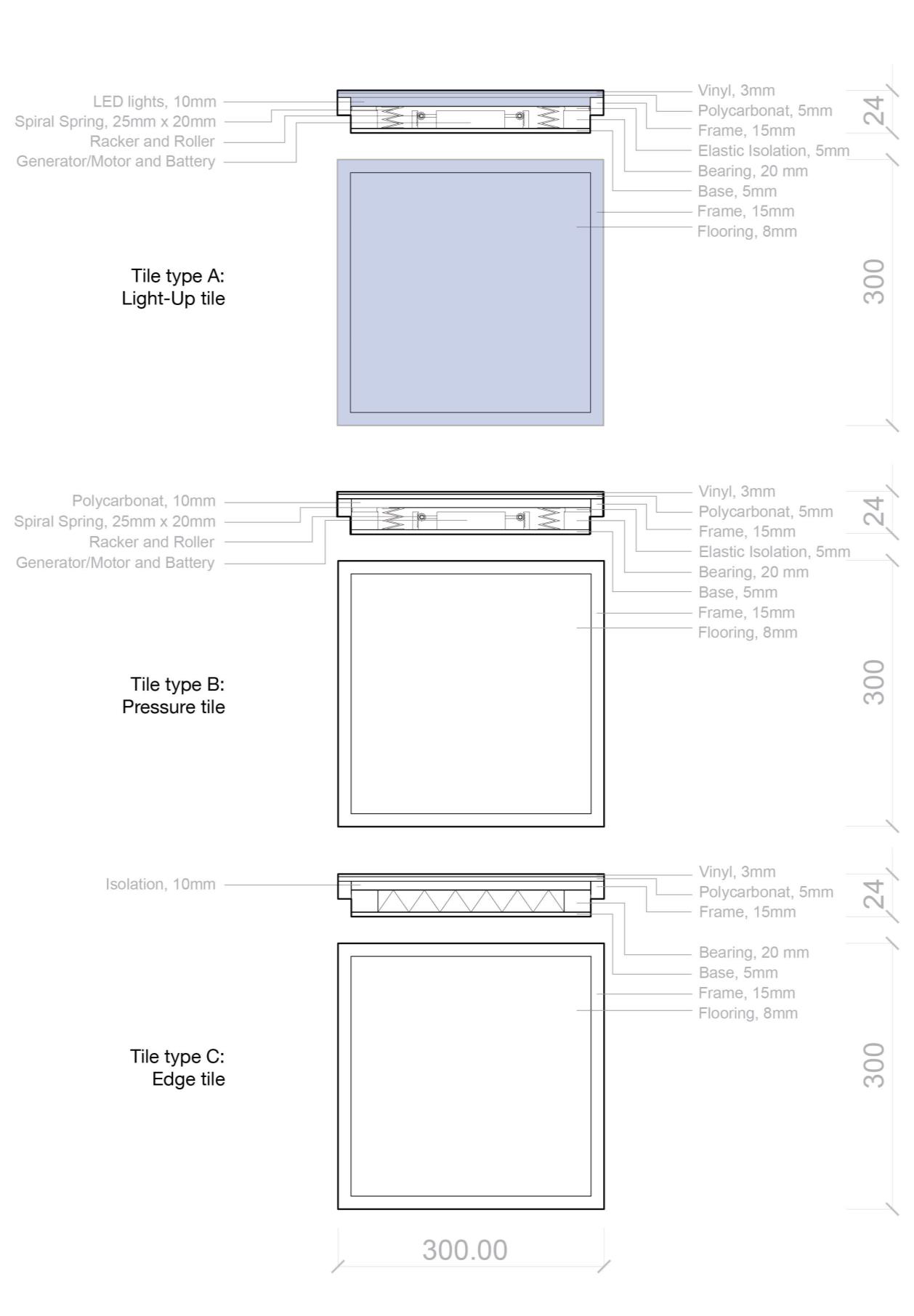
different tile types
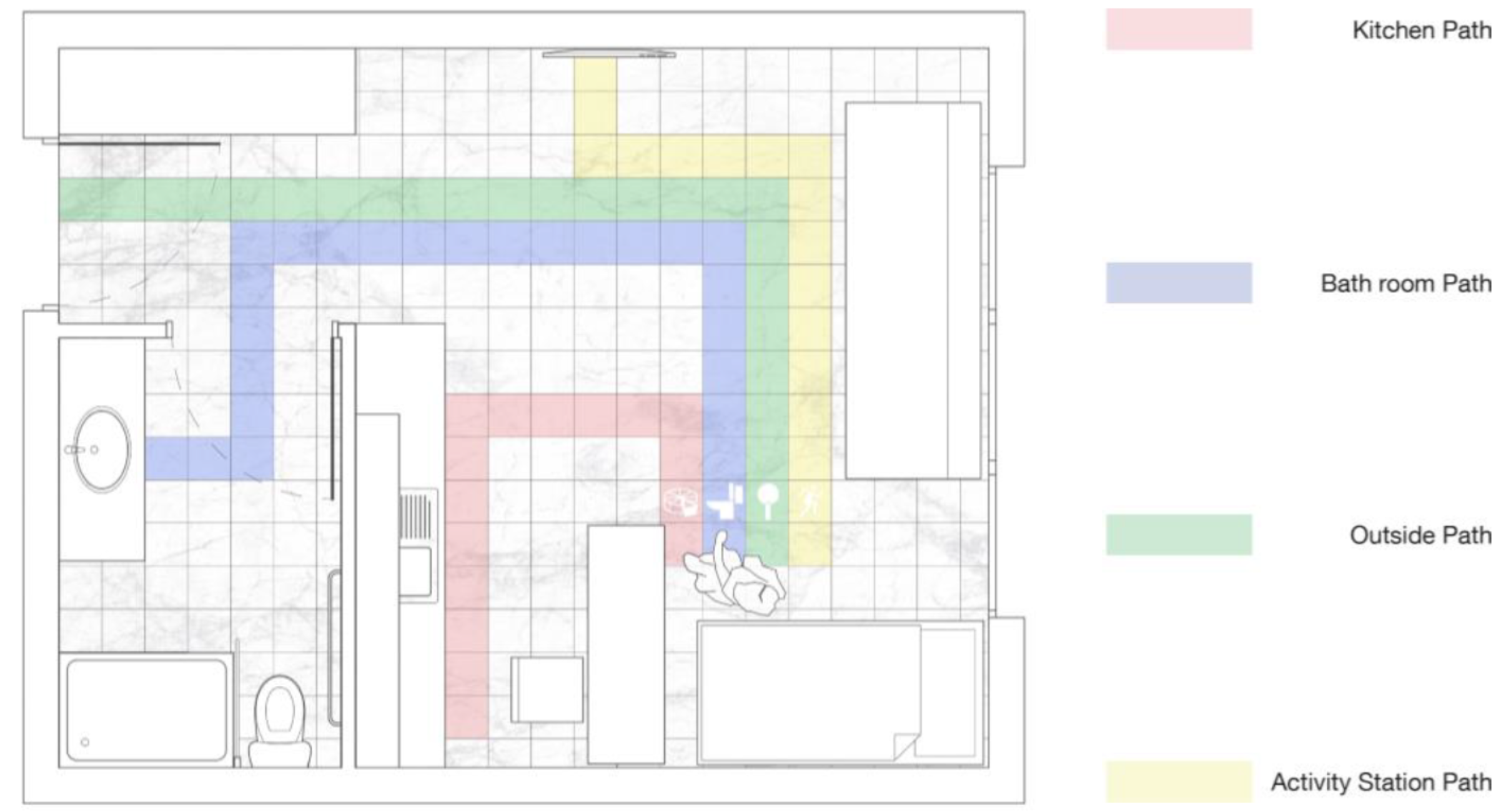
random process/ suggestion
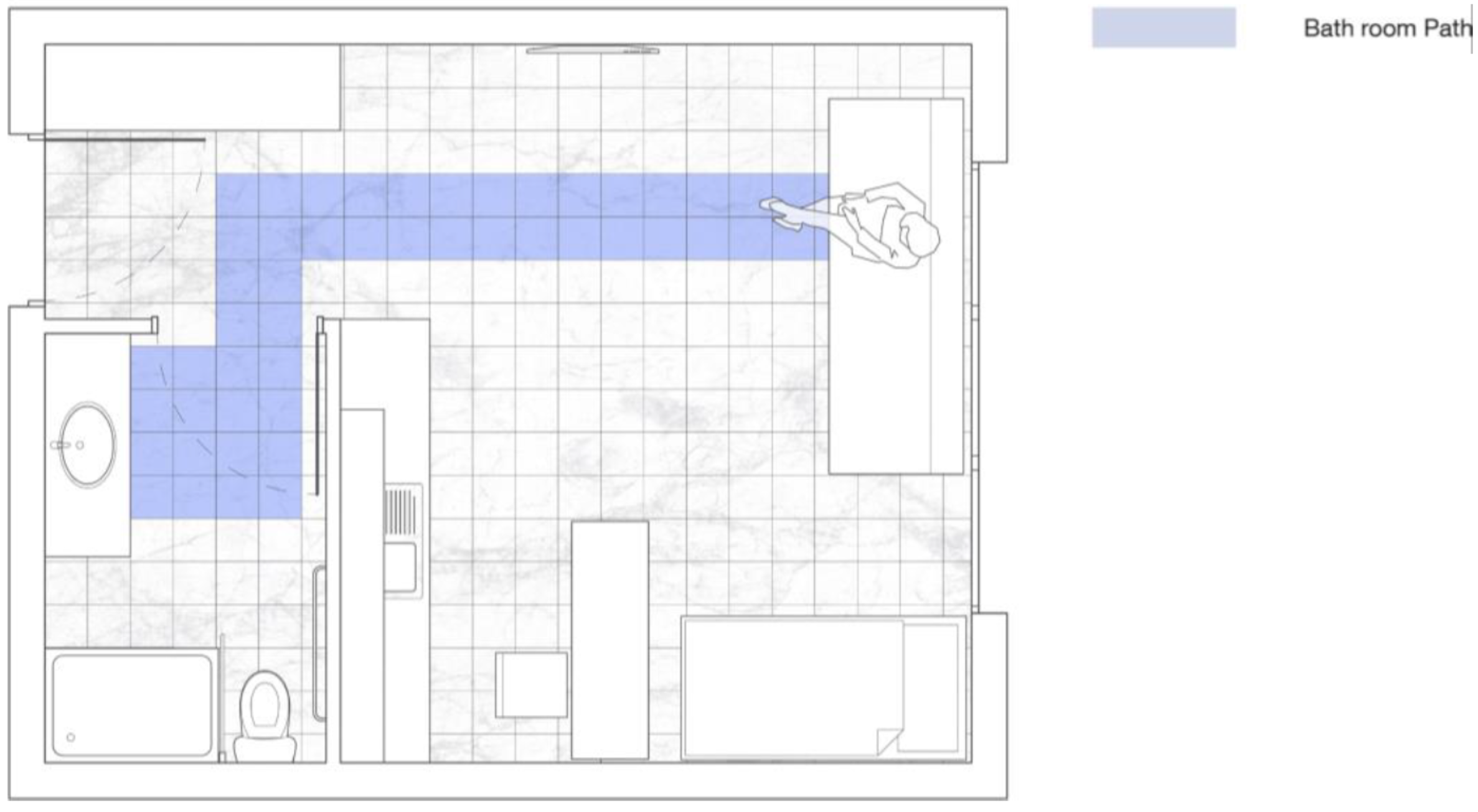
scheduled process
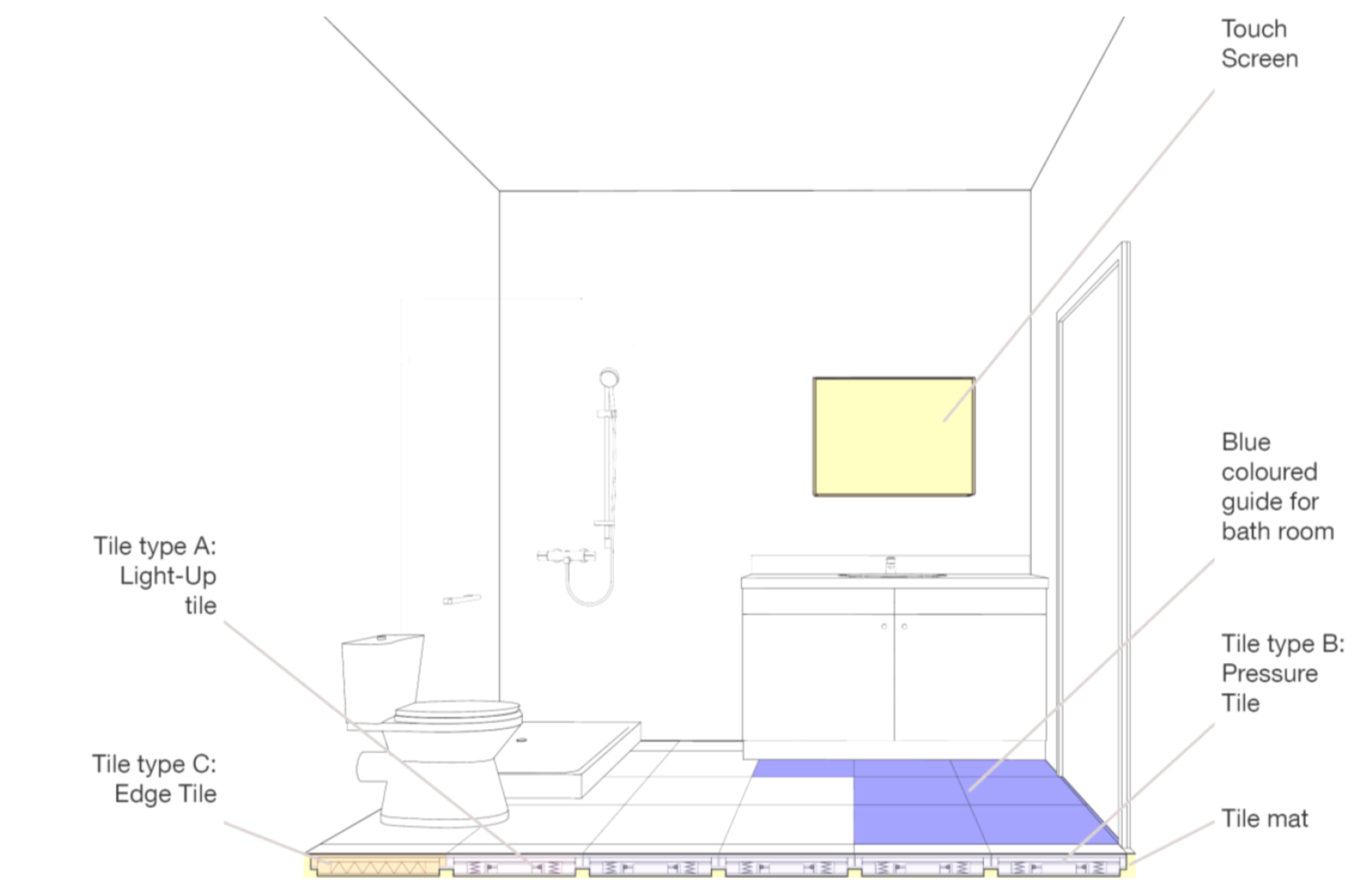
additive system of tiles and placing mat
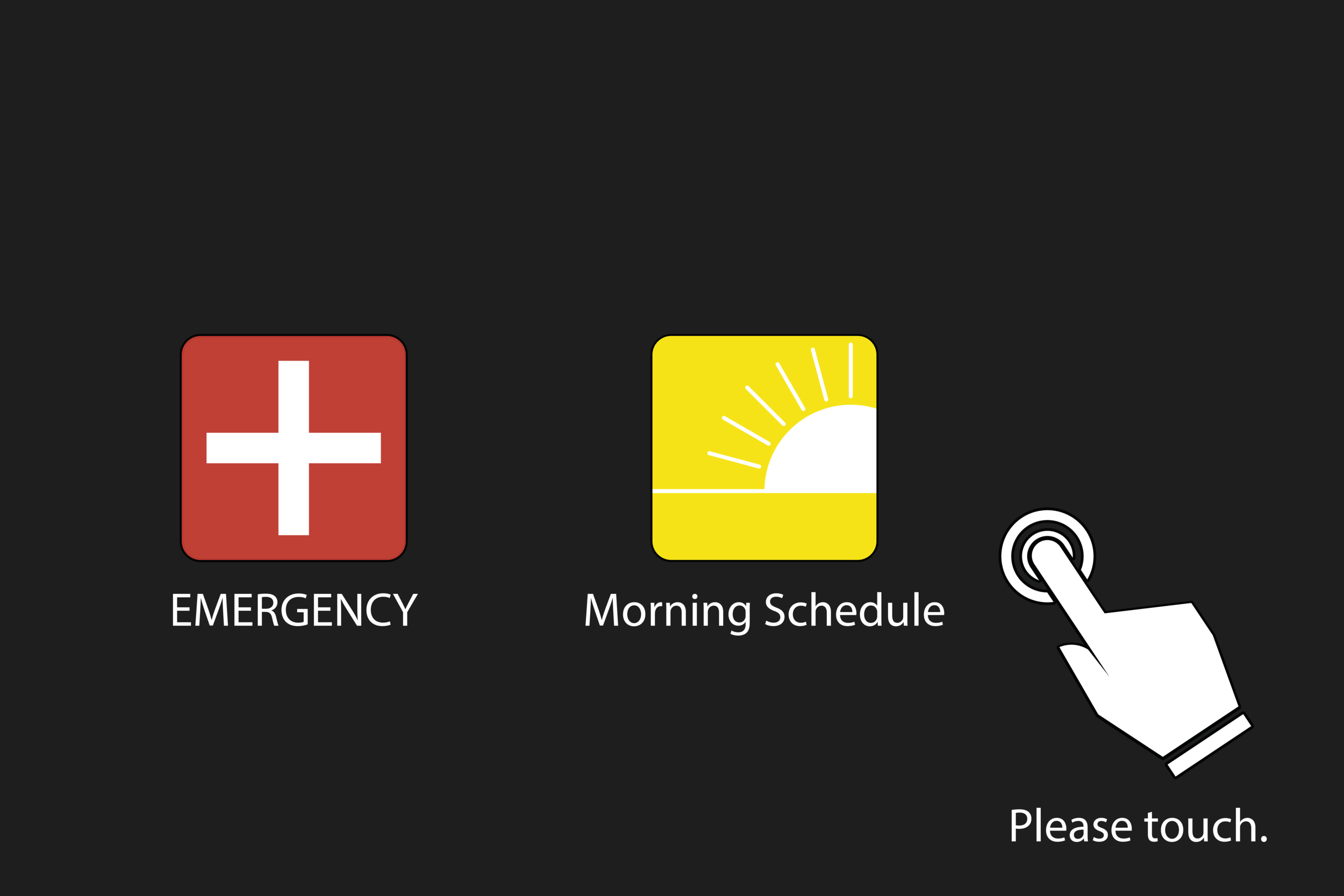
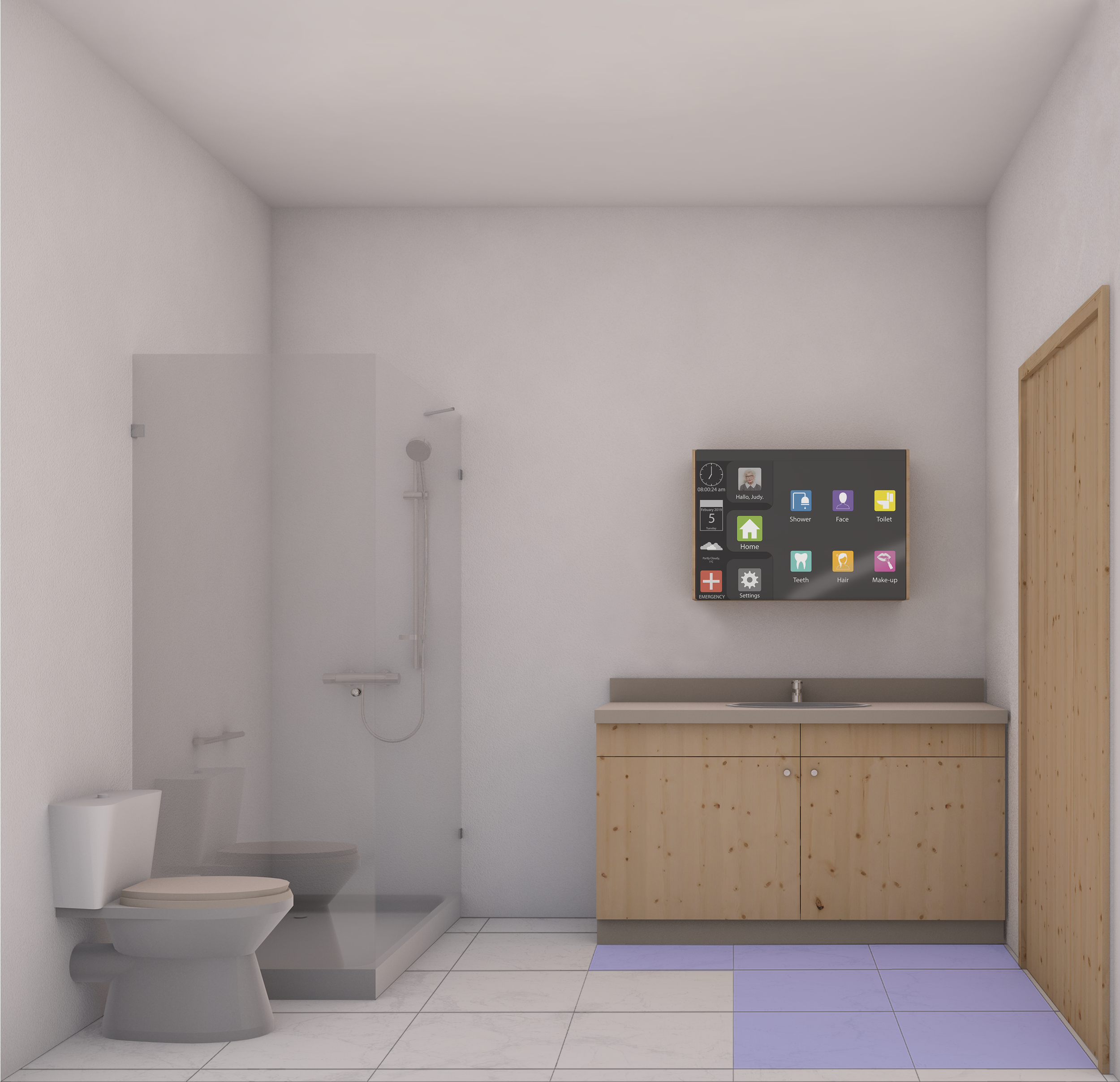
rendering/ bathroom scenario
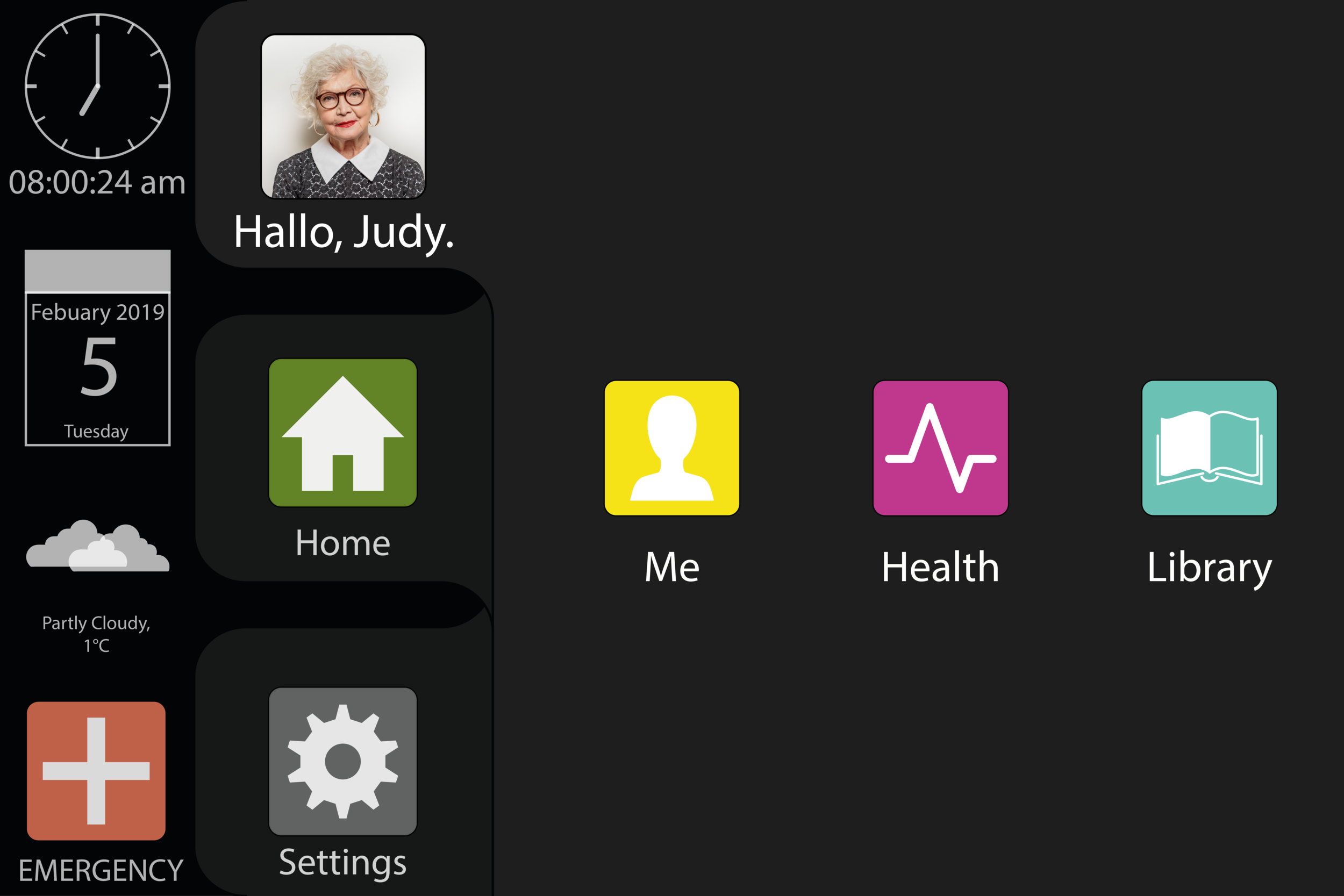
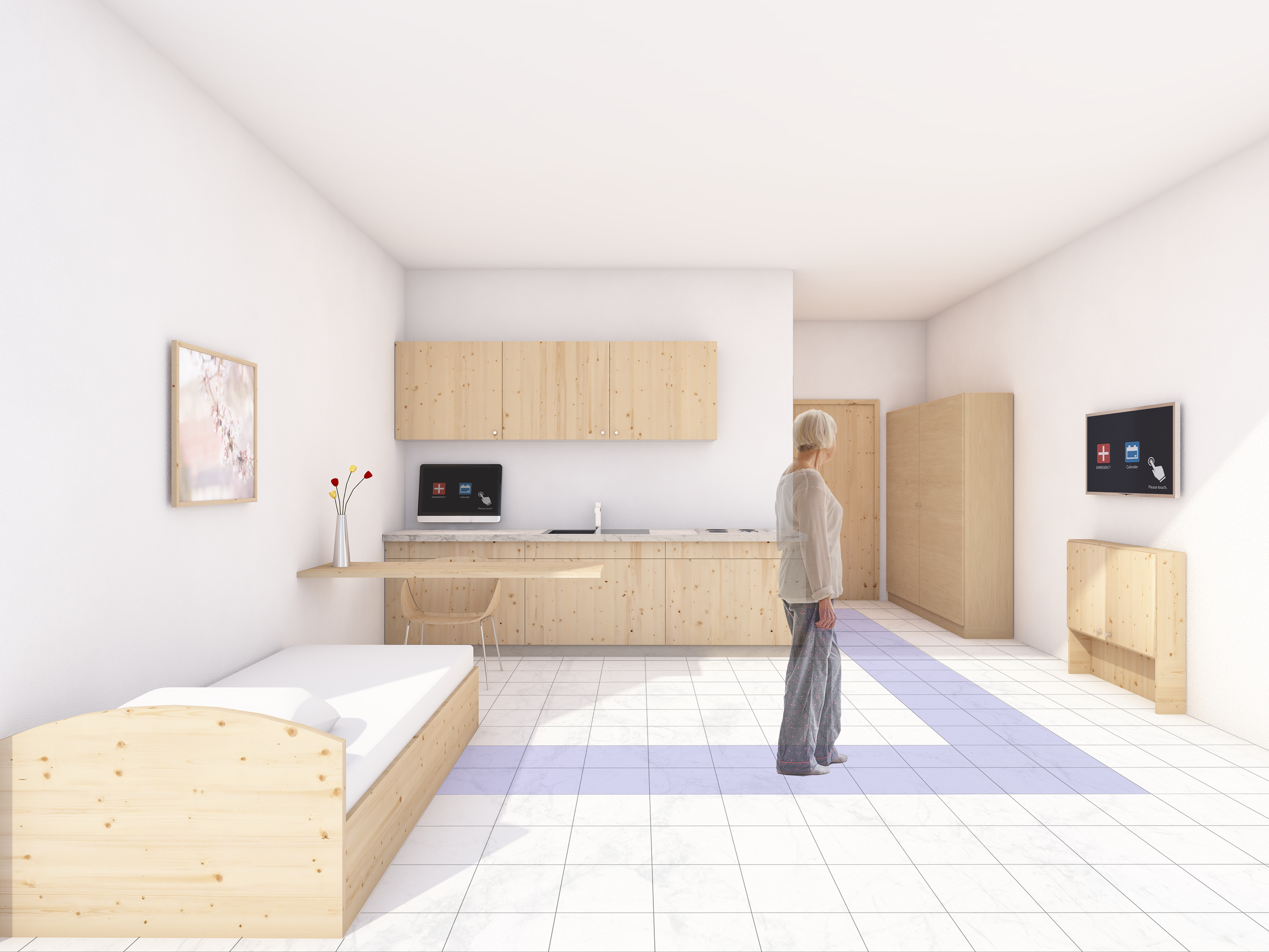
rendering/ scenario scheduled process

